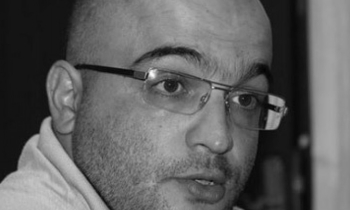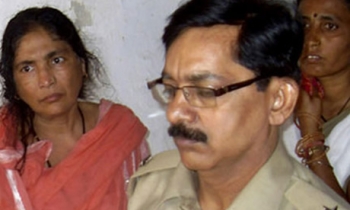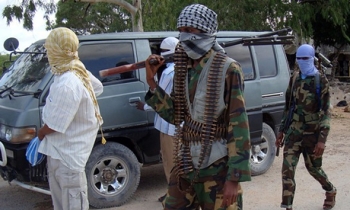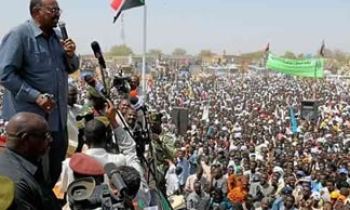The fourth anniversary of the still unexplained killing of three journalists by US troops in Baghdad was marked Sunday by a preceding week of shocking attacks on journalists in Iraq. Four journalists were killed during the week.
Thursday last saw the brutal murder of Khamaail Mohsin, a mother of three and journalist with Radio Free Iraq, the US-funded Radio station in Arabic, and the bombing of the Iraqi satellite channel Baghdad TV, killing the station’s Deputy Director, Thaer Ahmad Jaber, himself the father of seven daughters, and trainee journalist Husain Nizaer. The television station blast – a suicide bombing involving a garbage truck packed with explosives – also injured 11 staff, three of whom remain in a critical situation, the International Federation of Journalists (IFJ) said.
Further news has emerged of the killing of a fourth journalist, Othman al-Mashhadani, a reporter for the Saudi newspaper Al Watan, who had been kidnapped on Wednesday. His body was found in Baghdad. These deaths bring to 23 the number of Iraqi media personnel killed in 2007 alone. In all, according to IFJ’s statistics, 196 journalists and media workers have died in Iraq since the US invasion four years ago.
IFJ and its national journalists unions around the world renewed calls for the US to provide credible reports over a number of media deaths at the hands of US soldiers in Iraq and, in particular, the killing of three journalists on April 8, 2003.
Sunday marked the fourth anniversary of the attack by US troops on Palestine Hotel, which housed scores of media personnel, killing Taras Protsyuk of Reuters and Jose Couso of the Telecinco network in Spain. The same morning, journalist Tareq Ayyoub was killed when the Baghdad offices of the Arab satellite channel Al-Jazeera were attacked by US fighter planes.

“Four years on still no credible reports have been produced to explain these attacks and no one has been held to account for the killings,” said IFJ General Secretary Aidan White. “The United States must answer questions that are still asked over these deaths and many others at the hands of their troops in Iraq. With the number of media casualties growing daily, impunity becomes intolerable, particularly when it concerns the actions of those who speak in the name of democracy and human rights.”
In December 2006, the UN Security Council passed Resolution 1738 that protects journalists in conflict zones and says killing them can be considered a war crime.
IFJ has also demanded action over the deaths of British ITN reporter Terry Lloyd and his colleagues Fred Nérac and Hussein Osman, whose bodies are still missing, in an encounter between US and Iraqi troops near Basra in March 2003 as the invasion of Iraq gathered pace and has raised questions over the shooting by US soldiers of Reuters cameramen Mazen Dana.
In October last year, IFJ demanded the United States “tell the whole truth” about media deaths in Iraq at the hands of US troops after a British coroner ruled that the death of ITN reporter Terry Lloyd in the Basra fire-fight was an “unlawful killing.”
“The US military has never owned up to its responsibilities in Iraq,” White said. “We hope the UN resolution will help stop this trend of attacks on journalists but we must continue to fight to make sure that all past cases are investigated and the killers brought to justice. If not, we not only run the risk of more journalists being killed, but that these people will kill journalism as well.”
Last week’s killings cast a shadow over events organised Thursday last by the Iraqi Journalists Syndicate in solidarity with the victims of violence. The syndicate handed over more than US$ 80,000 to 220 families of victims. The government donated US$ 40,000, matching US$ 33,000 raised by member unions of IFJ through a special Iraqi Humanitarian Fund set up last year. A further US$ 8,000 contribution came from the Oil Ministry.









